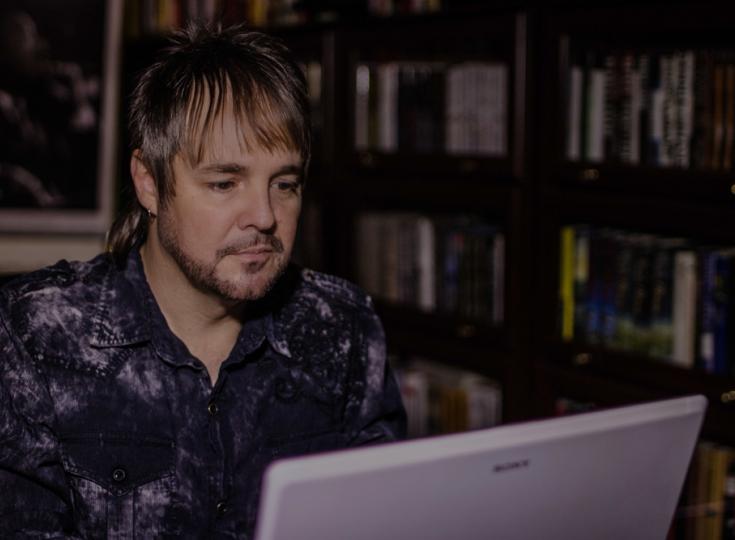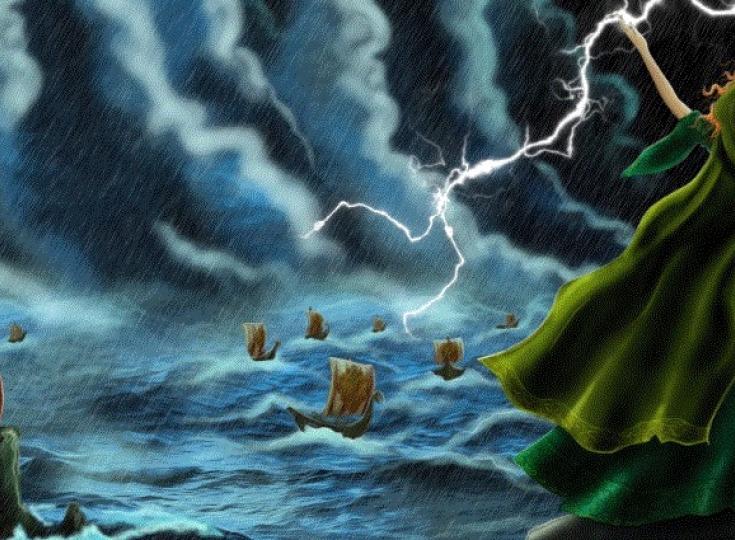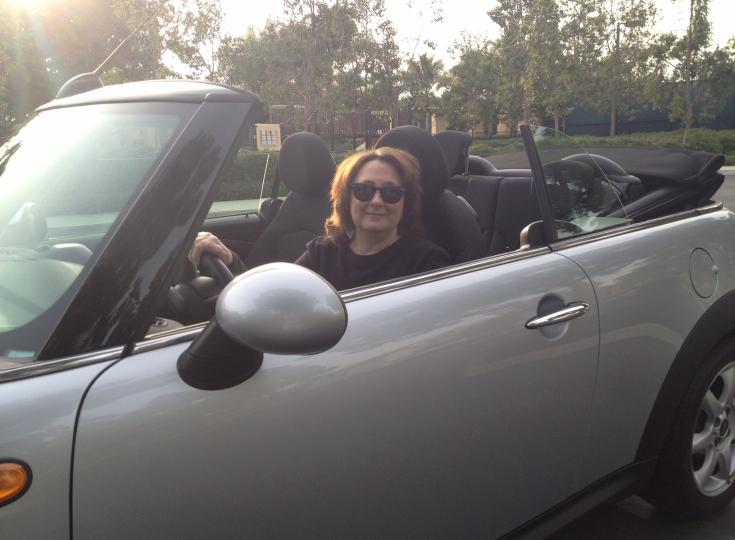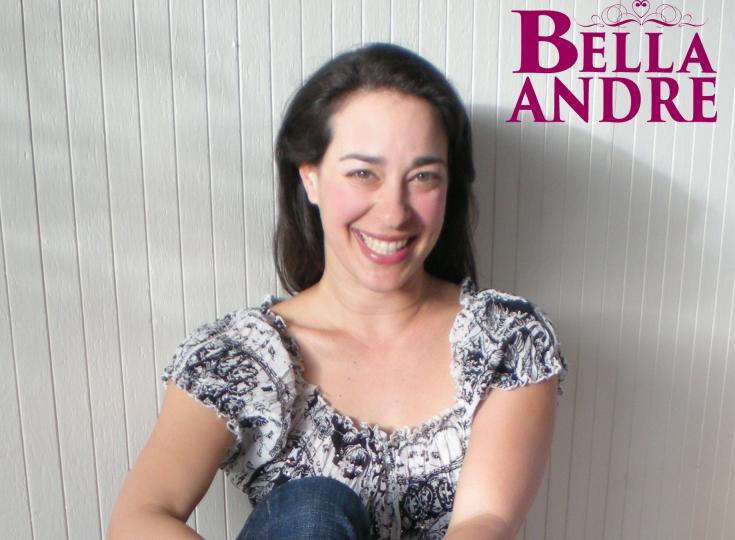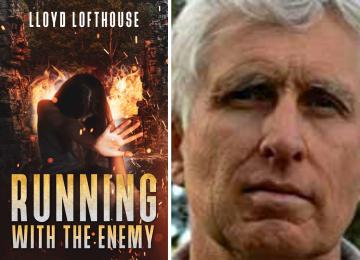Matthew Rozell - History is Just one Person Away
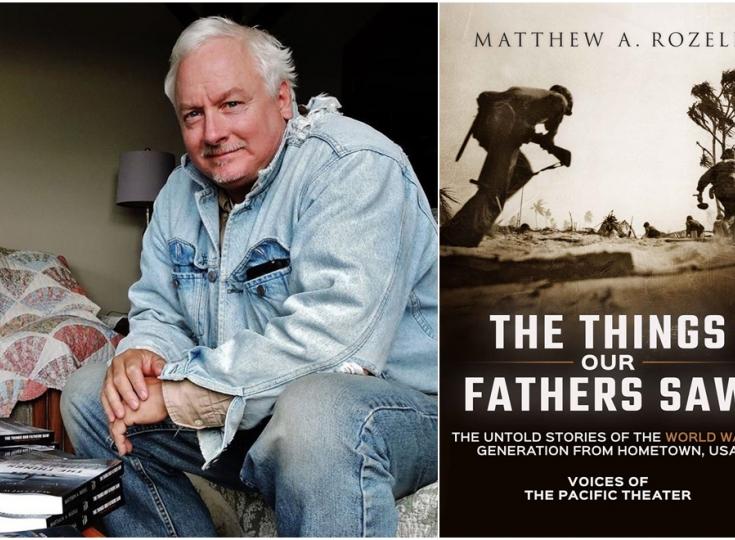
Matthew Rozell has a knack for engaging his audience and bringing history to life. Most recently, he has been rewarded the New York State Education Department's Yavner Teaching Award for Distinguished Contributions to Teaching the Holocaust and Human Rights. The Things Our Fathers Saw is a book that has been 25 years in the making. He has interviewed many WWII veteran and documented their stories and, in this book, brought them to life. As our Author of the Day, Rozell tells us all about it.
Please give us a short introduction to what The Things Our Fathers Saw is about.
This book walks us through the War in the Pacific through the eyes of thirty veterans, from all branches of service, men and women. People just don’t understand the magnitude of World War II. We were essentially fighting two full blown wars for four years, simultaneously. The book takes the reader from Pearl Harbor to the surrender in Tokyo Bay, but in the actual words of the veterans themselves.
What inspired you to write this book?
I taught high school history for over thirty years. Early on, I stumbled upon the key to engaging students and drawing them into a love of history and of their elders. I would begin a lesson on WWII by asking how many students had a family member who was involved somehow in WWII. Every hand would go up. We then invited our veterans to school to tell the stories, and I would help the kids contextualize it in the classroom. Then, we started to record and transcribe the interviews. I told the kids that someday this book would be for them. And now many of them have children, so it is for their kids, too; for all Americans, really.
This book is the first in a series - did you plan right from the start to make it into a series?
I would have to say yes. I had a prescient vison 25 years ago that what we were doing was important. And frankly, how could we gather these stories and keep them to ourselves? With the veterans permission, I envisioned a series of books. The second and third books are out, as well as a specialized book stemming from an interview I did with two tank commanders wo liberated a train full of concentration camp victims in the closing days of WWII in Germany. In fact, we went on to reunite those very same American soldiers with over 275 Holocaust survivors that they saved, in 11 reunions over three continents. So I wrote another book about it. If you think you know about the Holocaust (or don’t), read this book too. You will be astonished. (shameless plug).
How much research did this book require from you?
Plenty. It is full of juicy footnotes and research links. All of my books are, and that is what people like about it. It’s not enough to just accept the interview, or the narrative history as fact. We need to see some corroboration and that is what you get with my books. I fill in the gaps so that the history flows without interruption, or misinterpretation or misunderstanding.
What was the most interesting aspect of your research?
I get taken down some pretty ‘off the beaten paths’ sometimes, but I always loop it back to the narrative at hand. I have had WWII experts tell me that they learn something new, even though I write for the more general reader.
Why do you find it important for the stories from World War II not to be forgotten?
Because dying for freedom isn’t the worst thing that could happen. Being forgotten is.
You opted to tell the stories in the first-person. Why did you take this approach?
I don't know how to explain the feeling of sitting down and going back to re-listen to and edit these conversations, which in many cases took place years ago. As the writer/historian you spend days if not weeks with each individual, researching their stories, getting under their skin. You really have the feeling that you are doing a kind of cosmic CPR, taking their original words and breathing new life in a readable format . The reader shares the intimate moments with them as he/she gets absorbed in a real story being told. As an interviewer it happened many times to me directly with our World War II veterans, in living rooms, kitchens and dining rooms all over 'Hometown USA', in the classroom, and at reunion hospitality rooms' and hotel breakfast tables across America.
Besides writing, what other secret skills do you have?
I have won many national and state awards for my history teaching in the classroom (and out). My wife and I raised three children in a rural area on land that I cleared, and a house that I designed and built while I was also teaching fulltime. I also own a woodworking shop and need to get back into crafting fine furniture from scratch again soon! But I have more books to write as well.
Where did your fascination with history come from?
I have always had a passion to connect to history using real people. When I begin to teach or speak about the history, there is a level of excitement and passion that just flows out of me and engages my audience, be it high school students or hundreds of people listening to one of my presentations. And it has been with me since my earliest days. As a kid I roamed the banks of the Hudson River looking for lost encampments and historic battle sites. On museum trips to NYC, I was the kid everyone else in the family had to wait for, lagging behind, lost in the exhibits.
Why did you name the book "The Things our Fathers Saw"?
Don't you wish you could go back and sit at the top of the stairs and listen to your father, or grandfather and his friends tell their stories unhindered around the kitchen table, things they never shared with anyone but each other before, about the world they grew up in, the world they fought and sacrificed for, in many cases the things they saw that they never spoke of before? Well, that is what happens in this book. Read some of the reviews online and you will see what I mean. One woman wrote to me and said she cried through the book, that now she knew why her father was the way he was when she grew up. But it’s really a book about them, about life, about what is good and worth fighting and sacrificing for. And it’s not all sorrow and sadness. I promise you will beam with pride and feel good after reading this book.
Which famous person, living or dead would you like to meet and why?
Do you know that I am one person removed from FDR, Eisenhower, Churchill, and others? Think about that. Many of the people we interviewed shook hands with these folks on one occasion or another. And when I shook hands with my veteran, he placed me right there. I’m two people removed from the likes of Hitler, or Stain. And if I could shake your hand, you would be there with me, just one more person away. History can be that intimate.
Do you consider yourself a disciplined writer? Do you have a schedule that you stick to, or is it more in the moment?
Usually I am possessed when I write. It can be a blessing, but also exhausting.
What are you working on right now?
I am working on the next two books in the ‘Things Our fathers Saw’ WW II series, and have other narrative history books to get out of me as well.
Where can our readers discover more of your work or interact with you?
In the back of the books, there are links to my mailing list for new releases, Facebook page, and my blog, TeachingHistoryMatters.com. Some short links follow:
AMAZON AUTHOR PAGE: http://bit.ly/MR-bio
MAILING LIST (NO SPAM, EVER!) http://bit.ly/RozellNewBook
FACEBOOK: http://bit.ly/MAROZELLfb
